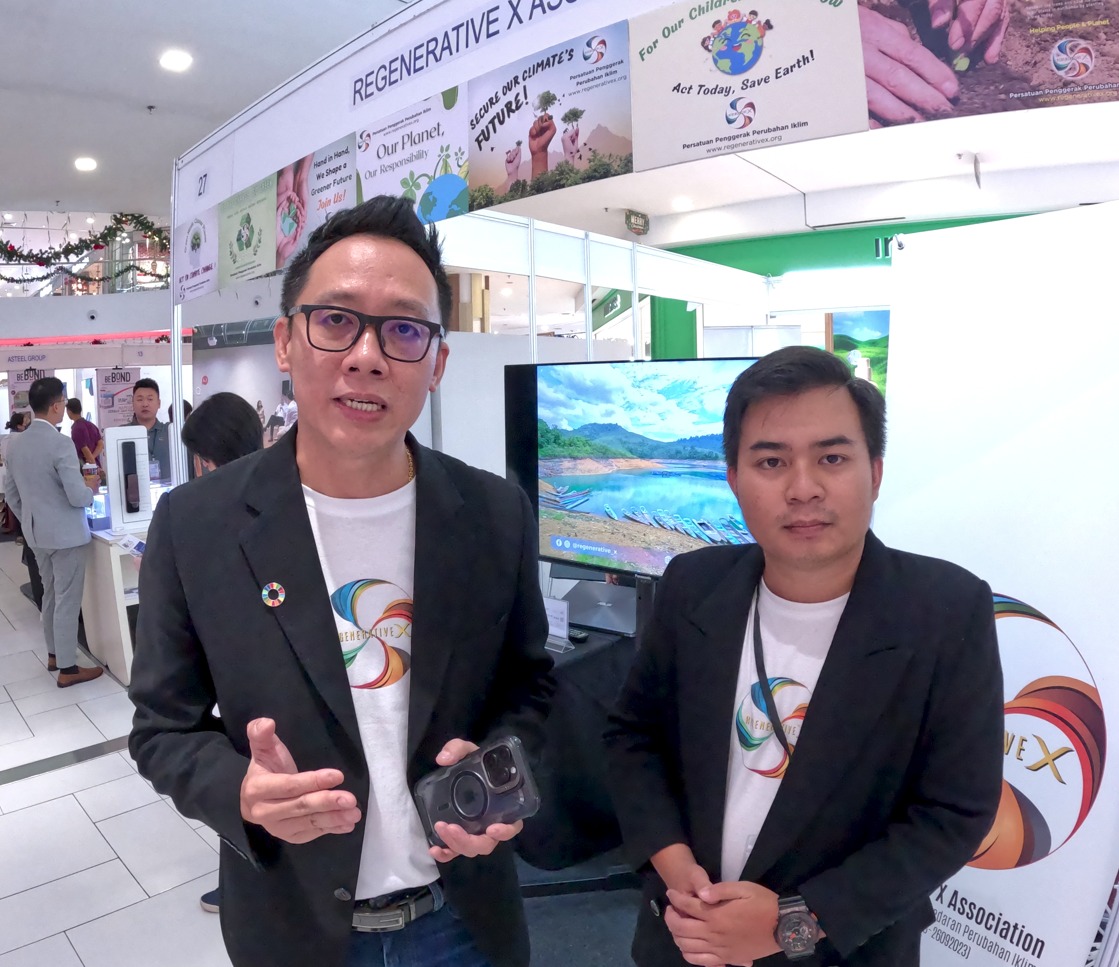
In a recent interview during the SHEDA Kuching Property Roadshow 2023, Mr. Prestly Ng, the president of the Regenerative X association, also known as Persatuan Penggerak Kesedaran Perubahan Iklim, shared his insights on the serious concerns posed by climate change in Sarawak, Malaysia. The state of Sarawak, located on the island of Borneo, is renowned for its rich biodiversity, including vast rainforests and unique wildlife. However, these ecosystems and the communities that rely on them are under threat due to changing climate patterns.
Mr.Ng highlighted that one of the primary impacts of climate change in Sarawak is the increase in temperatures. This rise can impose heat stress on the region's flora and fauna, subsequently affecting their growth and survival rates. Changes in rainfall patterns are also a significant concern, as longer dry seasons and more intense rainfall during the wet season can harm agriculture. Crops may be damaged by floods or suffer from water shortages during droughts which could lead to food insecurity. The state is also susceptible to extreme weather events such as floods, landslides, and strong winds, which can result in damage to infrastructure, and homes, and even loss of human lives.
Moreover, Sarawak's coastal areas are at risk due to rising sea levels, which can lead to erosion and flooding, adversely affecting the communities living near the coast. Saltwater intrusion is another issue that can contaminate freshwater resources, impacting the drinking water supply and agriculture. Furthermore, the rich biodiversity of the state could be jeopardized, with some species potentially facing extinction due to changes in their habitats.
To address the challenges posed by climate change in Sarawak, Mr. Ng emphasized the need for a combination of mitigation and adaptation strategies. This includes protecting and restoring forests, promoting sustainable agriculture practices, and upgrading infrastructure to withstand extreme weather events. Raising awareness about climate change and involving communities in decision-making processes is also crucial to ensure that their needs and perspectives are considered. Additionally, the state government and local authorities play a vital role in formulating and implementing policies to help Sarawak adapt to the impacts of climate change and contribute to global efforts to mitigate the problem.
Some climate-related changes are occurring faster than initially projected, indicating that the rate of change is accelerating. Many countries and international organizations have taken steps to reduce greenhouse gas emissions, transition to renewable energy sources, and implement adaptation measures. The Paris Agreement, adopted in 2015, represents a global commitment to limit global warming to well below 2 degrees Celsius above pre-industrial levels, with efforts to limit it to 1.5 degrees Celsius. Achieving these goals is seen as critical to avoiding the most catastrophic consequences of climate change.
While there is a growing awareness of the seriousness of climate change and increasing efforts to address it, there is still much work to be done to meet global climate targets and safeguard the planet for future generations. In conclusion, Mr.Ng urges all leaders, push for public awareness among the people, policy action, technological innovation, and international cooperation to come together in addressing this urgent global challenge.